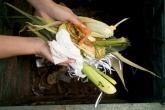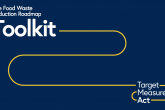£4.2m of funding awarded to food redistribution organisations
Four food redistribution organisations across England have been awarded a share of £4.2 million in government funding to redirect unwanted food from bins to plates.
Announced on Wednesday (8 May), redistribution groups FareShare, Company Shop Group, The Felix Project and Food Works Sheffield will share the funding, which is part of the first wave of the government’s £15-million food waste reduction scheme, launched in January 2019 as part of the Resources and Waste Strategy.

Of the total food wasted in the UK every year, 1.8 million tonnes come from food manufacture, one million from the hospitality sector and 260,000 tonnes from retail. The projects set to receive funding had to put forward proposals on how they intend to redistribute more surplus food from manufacturers and retailers, with solutions including developing new supply routes from growers and local distributors, funding new lines and additional staff and increasing capacity for repackaging and labelling.
Commenting on the funding award, Environment Minister Thérèse Coffey said: “Food waste is unnecessary and morally unforgivable. We must end it, and our £15-million fund is a true game-changer in making that happen.
“I am thrilled that this first round of funding will allow these terrific projects to redistribute even more perfectly good food, making sure it ends up where it belongs – on people’s plates and stomachs.”
The government’s food redistribution fund will run as a pilot scheme during 2019/20, with any future funding subject to the government’s spending review.
‘A major step forward’
FareShare, one of the funding recipients, had previously called on the government to increase funding for food waste reduction by £15 million, even before the government made the commitment. Chief Executive Lindsay Boswell said: “We are so pleased that FareShare will be able to take a major step forward in our aim to allow no good food to go to waste. The vast majority of the surplus food is found in the ‘supply chain’ of factories, packing houses, even going back to the farms themselves. We aim to use this fund to make it cost no more to divert this food to FareShare than any other form of disposal and are calling on the food industry to step up and help us as the UK takes a major step towards reducing food waste.”
Also commenting, Company Shop Group Managing Director Jane Marren said: “We are delighted to have won Defra’s backing to implement our Harnessing Harder to Reach Surplus project, which will enable Company Shop Group to deploy a specialist team of surplus intervention experts to work with food industry partners to find solutions to complex surplus challenges.
“This project will achieve long-term environmental benefits; it will help the supply chain to maximise the value of their products, and it will deliver clear and tangible social impact.”
Tackling food waste
The government has placed increasing emphasis on tackling food waste, with several policies included in its Resources and Waste Strategy. Among these was the proposal to provide all households in England with weekly separate food waste collections, a measure currently under consultation.
The Strategy has also provided for the mandatory reporting of food waste by businesses of a certain size and committed to publishing a new food surplus and waste hierarchy. To drive the government’s action on food waste forward, it announced the first ever Food Surplus and Waste Champion at the turn of the year, with philanthropist Ben Elliot being appointed to the newly-created role.
Important moves in business are also being made towards reducing food waste, with organisations from across the UK food industry signing up last September to the first Food Waste Reduction Roadmap. The Roadmap, created by WRAP and IGD, a research group for the food industry, urges large business to adopt a ‘Target-Measure-Act’ approach to reducing food waste by:
- Setting a food waste reduction target for their own UK operations in line with the UN Sustainable Development Goals;
- Measuring their results in a consistent way and sharing their findings publicly and transparently; and
- Acting to reduce their own food waste as well as to help suppliers and consumers do the same.
This new commitment will work alongside Courtauld 2025, another WRAP-led initiative for the UK food industry. Launched in 2016 as the fourth part of the wider Courtauld Commitment, a series of voluntary agreements beginning in 2005, Courtauld 2025 is aiming for a 20 per cent reduction in food and drink waste over 10 years and according to WRAP, its signatories represent 95 per cent of the UK food retail market. 








